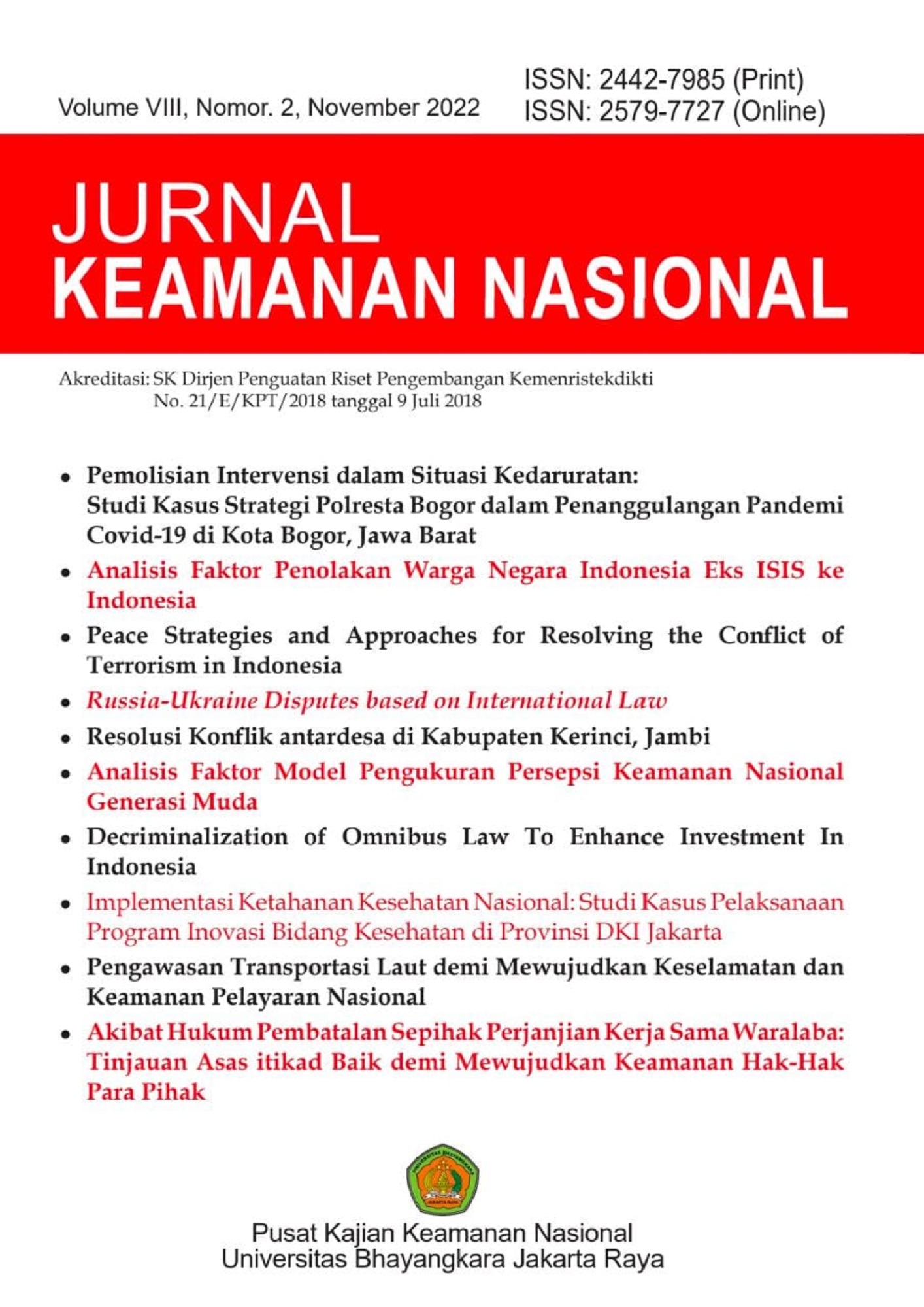Analisis Faktor Penolakan Warga Negara Indonesia Eks ISIS ke Indonesia
DOI:
https://doi.org/10.31599/914dcb66Keywords:
ISIS, Policy; Government; Radicalism; TerrorismAbstract
This article aims to analyze several factors that caused the government to reject the return of ex-ISIS Indonesian citizens to Indonesia. This research was explanatory research using a qualitative approach. Meanwhile, the data collection technique was a literature study using the Google Scholar search engine and Harzing Publish or Perish. The authors used Miles and Huberman’s data analysis technique using the interactive model qualitative data analysis technique. The authors found that two factors influenced the rejection of the return of ex-ISIS Indonesian citizens: internal and external factors. Internal factors consist of political factors, security factors, and cultural factors. Meanwhile, the external factors related to the Global War on Terrorism (GWOT). As for the political factor, the ex-ISIS members have a radical ideology for gaining their political interests. Then from the security factor, it was found that the ex-ISIS members had combat skills and knowledge, which would significantly affect the security and living conditions of the community. Finally, from cultural factors, ex-ISIS members tend to have an intolerant nature resulting from their ideology. The existence of this intolerant nature will undoubtedly clash with the diverse cultural conditions of the Indonesian people. The external factor is Indonesia’s participation in the effort to fight global terrorism together with other countries.
Downloads

Downloads
Published
Issue
Section
License
Please read and understand the copyright terms for submissions to this journal.
Copyright Notice
The Jurnal Keamanan Nasional is under the Creative Commons Attribution 4.0 International (CC-BY 4.0) License, according to which:
1) Authors retain copyright and grant the journal the right to first publication, with the work simultaneously licensed under the Creative Commons Attribution (CC-BY 4.0) that allows the sharing of articles published with the acknowledgement of authorship and the initial publication in this journal.
2) The authors are authorized to make additional contracts separately for distribution of the version of the work published in this journal (for example, publication in an institutional repository or as a chapter of the book), as long as there is recognition of authorship and initial publication in this journal.
3) Authors are authorized and encouraged to publish and distribute their work online (for example, in institutional repositories or on their personal pages) at any time before or during the editorial process, as it increases the impact and reference of the published work.












